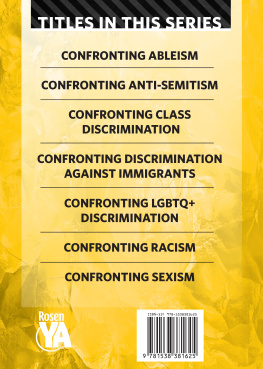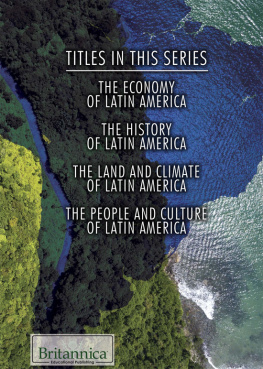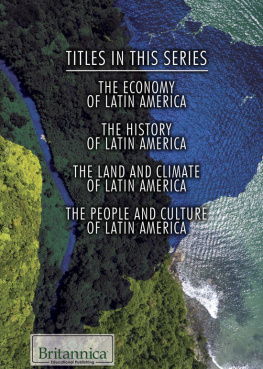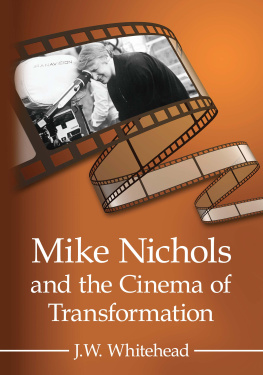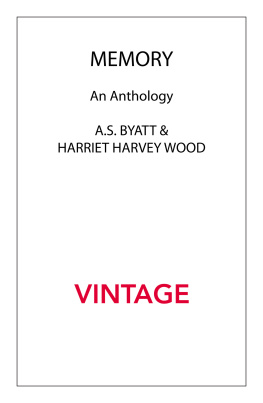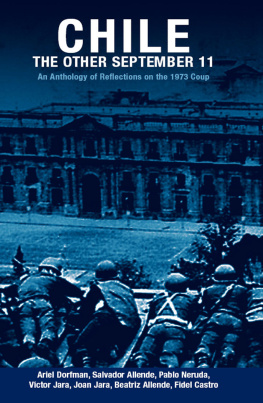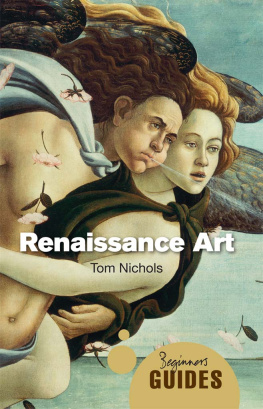

First published 1984 by Museum Education Roundtable
Published 2016 by Roudedge
2 Park Square, Milton Park, Abingdon, Oxon OX14 4RN
711 Third Avenue, New York, NY 10017, USA
Routledge is an imprint of the Taylor & Francis Group, an informa business
Copyright 1984 by Museum Education Roundtable, Washington, D.C.
All rights reserved. No part of this book may be reprinted or reproduced or utilised in any form or by any electronic, mechanical, or other means, now known or hereafter invented, including photocopying and recording, or in any information storage or retrieval system, without permission in writing from the publishers.
Notice:
Product or corporate names may be trademarks or registered trademarks, and are used only for identification and explanation without intent to infringe.
Publication of this anthology was made possible with loans from three generous friends of museum education and Roundtable Reports. Copies of this book are available from the American Association of Museums, 1055 Thomas Jefferson Place, N.W., Washington, D.C. 20007.
This book was designed by Kevin Osborn and composed by Barbara Shaw at The Writers Center, Bethesda, Maryland. The Writers Center is partially funded by grants from the National Endowment for the Arts.
ISBN 13: 978-1-59874-077-6 (pbk)
Table of Contents
Richard Grove
Bruno Bettelheim
Barbara Fertig and Judy Herman
Elaine Heumann Gurian
Dennis A. OToole
Jane Glaser, Panel Moderator
Ken Yellis
Christopher Crosman
Thomas P. Weinland and Richard L. Bennett
Thomas P. Weinland
Patterson Williams
Patterson Williams
Dennis A. OToole
Staff of the Friends of the National Zoo
Patterson Williams
John Fines
Joan C. Madden
, A Seminar with Elaine Heumann Gurian
Museum Education Students, George Washington University
Alberta Sebolt George
Alice P. Kenney
Janice Majewski
Zora Martin
Zora Martin Felton
Dennis A. OToole
Adrienne Horn
, A Seminar with Alberta Sebolt
Museum Education Students, George Washington University
Peter OConnell
Jane Buzzard and Marilyn Childress
Robert Sullivan
Thomas J. Schlereth
Barbara Fertig
Ken Yellis
David L. Butler
Nancy Brennan
Margaret DiBlasio and Raymond DiBlasio
Helen Luckett
Linda Sweet
Edeen Martin
Benjamin Ives Gilman
Ken Yellis
Marlene Robinson
Joseph Reis
, A Seminar with Dolo Brooking
Museum Education Students, George Washington University
Minda Borun
Nelson Graburn
John H. Falk
Mary Powell Flanders
Barbara Fertig
Eugene Gennaro, Shirley Ann Stoneberg and Sandy Tanck
John J. Koran, Jr. and Mary Lou Koran
Guide
Its a long title Museum Education Anthology: Perspectives on Informal Learning, A Decade of Roundtable Reports. But then its been a long time in coming!
Since 1979, members of the Editorial Committee of the Museum Education Roundtable have wished aloud occasionally that they could pull together, in a single issue, selected articles from past Roundtable Reports . Perhaps that issue could include out-of-print and often-requested articles. Or maybe it might serve double duty as a means of self-documentation of MER and the Editorial Committee. As conversation became expansive, the editors embellished their pipe dream. As a service to their colleaguesand a convenience to themselvesthey would compile an index of past Roundtables . Each time the topics were introduced, the editors agreed eagerly that either effort would indeed be a worthy undertaking. Likewise however, each time these intentions were raised further discussion was tabled until after the next issue is in the mail.
That omnipresent next issue delayed the editors dream until April 1983 when Roundtable Reports completed its first full decade of publication. In 1981, MER itself had celebrated its tenth anniversary. Perhaps these benchmark dates were the requisite catalysts. Mary Alexander, the first editor of Roundtable Reports , Ken Yellis, a long-time editor and the current editor-in-chief, and I, also a senior member of the Editorial Committee, were appointed to consider the alternatives and come up with a plan.
Our early conversations suggested that the selected articles could be a special issue of the quarterly journal. The index too could be a separate issue of Roundtable Reports , or sections could be included in scheduled issues. An initial culling of articles for inclusion led us to muse that a small book might be the final product. The size grew again when we decided that a handful of the original authors would be asked to write updates or to set their writing in context. Now that idle conversation about a special issue of a few reprints from Roundtable Reports had grown to an anthology with some new writing, the three of us agreed that the complete index would be a natural appendix to the publication.
Needless to say, the final proposal which we submitted to the MER Board of Directors described an ambitious project, one which would demand time and money, two scarce resources for an all-volunteer organization. After prudent considerations, the Board with cautious enthusiasm approved the proposal for an anthology of an estimated 250 pages, and agreed to lend its full support.
That historical synopsis recounts how the Museum Education Anthology came about, but what about its contents? Does a re-reading of articles since 1973 reveal progress in better understanding our professional aims, our audiences, our training, our programs and practices? What have we cared enough about to write about?
Articles about curiosity open and close this anthology of pieces written by individuals who are or who work closely with museum educators, men and women who are curious about themselves, their work and their world. Sandwiched between are provocative accounts about teaching techniques using real stuff, introspective glances at ourselves and our field, reports of program successes and near successes, evaluative studies, and reviews of exhibitions and literature directly or indirectly related to learning from objects. The articles were selected for their range of topics and good writing and for the overall picture they present of a decade of Roundtable Reports .
Some have questioned why do an anthology? In addition to the practical considerations mentioned earlier, two of our new writing contributors articulate the less tangible reasons. Richard Grove, an early member of the Museum Education Roundtable, writes: As one who read these articles as they came out over the years, I was pleased on reading them again to find out how well they have stood up. And Elaine Heumann Gurian, in commenting on her thoughts presented in 1976, notes: I continue to be grateful to be in a profession that encourages the energy, idealism, and enthusiasm evidenced in the original article. I believe firmly in the things I said, but age would have blunted the passion. Thank you for reminding me that the juices still flow.




